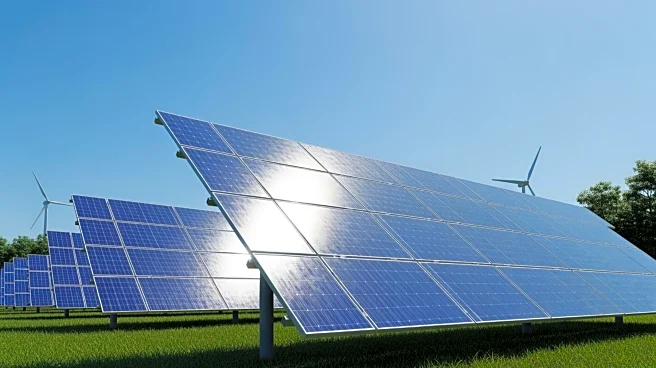What's Happening?
India has announced the issuance of 3,600 megawatts (MW) of renewable energy tenders in September, focusing on solar and wind projects. The Deendayal Port Authority has invited bids for a 1,000 MW solar project in Gujarat,
while SJVN seeks bids for a 600 MW wind project. Additionally, Coal India Limited plans to develop 3,000 MW of solar projects across several states. From January to August 2025, India added 25,264 MW of solar and 4,517 MW of wind capacity, reaching a cumulative renewable energy capacity of 242.6 gigawatts.
Why It's Important?
The expansion of renewable energy capacity in India is crucial for meeting the country's energy demands sustainably. This move aligns with global efforts to reduce carbon emissions and transition to cleaner energy sources. The tenders represent significant investment opportunities and could stimulate economic growth in the renewable energy sector. As India continues to increase its renewable capacity, it may influence global energy markets and contribute to international climate goals.
What's Next?
The successful implementation of these projects will depend on the response to the tenders and the ability of companies to deliver on large-scale renewable energy projects. The ongoing expansion may attract further investment and technological advancements in the sector. Stakeholders, including government agencies and private companies, will likely monitor the progress closely to ensure alignment with national energy policies and international climate commitments.
Beyond the Headlines
India's renewable energy push may have broader implications for energy policy and economic development. It could lead to job creation in the green energy sector and foster innovation in energy technologies. Additionally, the focus on renewable energy may encourage other countries to accelerate their own transitions to sustainable energy sources.








